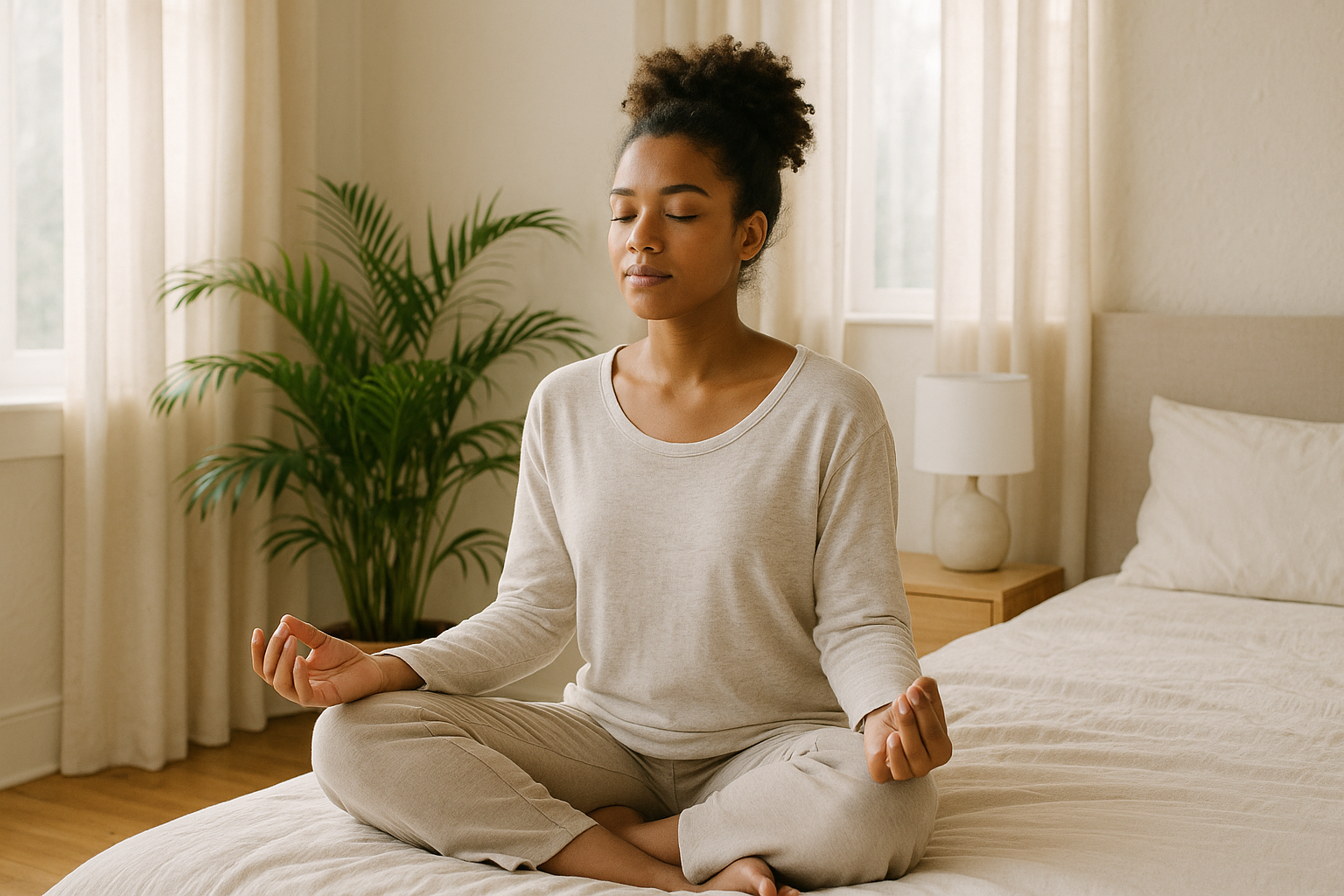Modern life intensifies stress. Many people juggle work demands, family, and constant connectivity. Anxiety and panic symptoms often spike when life feels relentless. Weekends offer a clear opportunity to reset the nervous system and build habits that support a calmer week.
1. Why weekend routines matter for mental health
Weekends act as a practical breathing space. You cannot fix chronic stress in one morning, but you can use two days to restore balance. Small, repeated practices on weekends change how your brain responds to stress during the week.
Research shows routines reduce anxiety by creating predictability. When you plan calming activities, your body experiences fewer surprises. That reduces the frequency and intensity of panic reactions.
2. Five simple weekend habits to build a restful mind
Choose two or three habits and practice them consistently. Below are practical options you can try this weekend.
- Unplug blocks: Schedule 90-minute phone-free windows each day.
- Movement with purpose: Do 20–30 minutes of moderate movement like walking, yoga, or cycling.
- Nature exposure: Spend 30 minutes outside. Natural light and fresh air lower stress hormones.
- Mindful breathing: Practice a 4-4-4 breathing set or box breathing three times a day.
- Evening wind-down: Create a predictable pre-sleep routine to improve sleep quality.
These habits give you immediate benefits. You will notice clearer thinking, steadier emotion, and fewer startle reactions. Over weeks, you will face weekday stress with more resilience.
3. Micro-practices for anxiety and panic — quick, effective tools
Panic can arrive quickly. Micro-practices deliver fast relief without requiring much time or special equipment. Practice them when you feel the first signs of anxiety.
Try these exercises during a moment of rising anxiety:
- 4-4-4 breathing: Inhale 4 seconds, hold 4 seconds, exhale 4 seconds. Repeat six times.
- 5-4-3-2-1 grounding: Name 5 things you see, 4 you feel, 3 you hear, 2 you smell, 1 you taste.
- Progressive muscle release: Tense a muscle group for 5 seconds, then release. Move head to toe.
- Cold-water splash: Run cool water on your face for 10–15 seconds to reset the vagus nerve.
Practice these micro steps on calm days so they become automatic. When chosen habits feel familiar, your nervous system recognizes safety faster. That shortens panic episodes and lowers overall anxiety levels.
4. Weekend examples that turn habits into results
Pick a realistic plan you can repeat. Below are two full-day examples you can adapt for your schedule.
Saturday: Reset and recharge
Morning: Start with 20 minutes of gentle movement and 10 minutes of breathing. Eat a balanced breakfast.
Afternoon: Take a nature walk. Practice the 5-4-3-2-1 grounding exercise while outside. Spend 90 minutes without your phone.
Evening: Journal one thing that went well and plan one calming activity for Sunday. Do a consistent wind-down routine before bed.
Sunday: Connect and prepare
Morning: Do a short mindful breathing session and a quick body scan. Prepare a simple, nutritious meal.
Afternoon: Meet a friend for a walk or call a family member. Social connection lowers stress and increases a sense of safety.
Evening: Review the week ahead. Choose two non-negotiable rest practices to follow during weekdays. Go to bed at a consistent time to stabilize your circadian rhythm.
5. How Trankua supports weekend habits and instant relief
You need tools that act quickly during spikes of anxiety and help you build routines over time. Trankua offers on-demand practices and structured weekend routines you can use anywhere.
Use Trankua to make habits easier and more consistent. The app places calming practices at your fingertips so you do not have to remember complex steps under stress.
- Guided breathing sets for immediate regulation
- Grounding prompts with audio cues for fast focus
- Quick panic-mode sequence that gives step-by-step help
- Offline access so you can use tools without internet
- Simple tracking to notice progress across weekends
These features help you act instead of react. When you practice on weekends, Trankua makes the skill portable. You will carry calmer responses into Monday and beyond.
Putting it into practice: a 30-day weekend plan
Commit to small, consistent steps. Try this plan for one month and notice the shift in how you respond to stress.
- Week 1: Pick two habits—unplug blocks and 4-4-4 breathing. Practice each weekend day.
- Week 2: Add a 20-minute walk and a nature session. Keep breathing practice three times per day.
- Week 3: Introduce journaling or a social connection on one weekend day.
- Week 4: Create a repeatable wind-down routine and track sleep timing.
Focus on consistency rather than perfection. Small wins build confidence and reduce the likelihood of panic. Use checkpoints each Sunday evening to note what helped and what you will repeat.
If you want instant guidance while you practice, use this resource. Trankua places calm tools where you need them.
Start small. Use these weekend habits to reduce reactivity and create space for calm thinking. With steady practice, your nervous system will learn new patterns. You will feel steadier, sleep better, and react less to everyday stress.
Research Output: -1759765238

